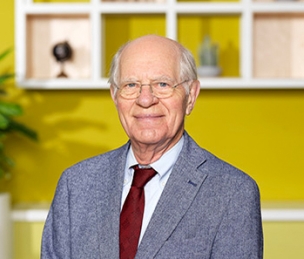Displaying 1 - 13 of 13
-
Levelt, W. J. M. (1991). Die konnektionistische Mode. Sprache und Kognition, 10(2), 61-72.
-
Levelt, W. J. M. (1991). Lexical access in speech production: Stages versus cascading. In H. Peters, W. Hulstijn, & C. Starkweather (
Eds. ), Speech motor control and stuttering (pp. 3-10). Amsterdam: Excerpta Medica. -
Levelt, W. J. M., Schriefers, H., Vorberg, D., Meyer, A. S., Pechmann, T., & Havinga, J. (1991). Normal and deviant lexical processing: Reply to Dell and O'Seaghdha. Psychological Review, 98(4), 615-618. doi:10.1037/0033-295X.98.4.615.
Abstract
In their comment, Dell and O'Seaghdha (1991) adduced any effect on phonological probes for semantic alternatives to the activation of these probes in the lexical network. We argue that that interpretation is false and, in addition, that the model still cannot account for our data. Furthermore, and different from Dell and O'seaghda, we adduce semantic rebound to the lemma level, where it is so substantial that it should have shown up in our data. Finally, we question the function of feedback in a lexical network (other than eliciting speech errors) and discuss Dell's (1988) notion of a unified production-comprehension system. -
Levelt, W. J. M., Schriefer, H., Vorberg, D., Meyer, A. S., Pechmann, T., & Havinga, J. (1991). The time course of lexical access in speech production: A study of picture naming. Psychological Review, 98(1), 122-142. doi:10.1037/0033-295X.98.1.122.
-
Levelt, W. J. M. (1984). Geesteswetenschappelijke theorie als kompas voor de gangbare mening. In S. Dresden, & D. Van de Kaa (
Eds. ), Wetenschap ten goede en ten kwade (pp. 42-52). Amsterdam: North Holland. -
Levelt, W. J. M. (1984). Some perceptual limitations on talking about space. In A. J. Van Doorn, W. A. Van de Grind, & J. J. Koenderink (
Eds. ), Limits in perception (pp. 323-358). Utrecht: VNU Science Press. -
Levelt, W. J. M. (1984). Spontaneous self-repairs in speech: Processes and representations. In M. P. R. Van den Broecke, & A. Cohen (
Eds. ), Proceedings of the 10th International Congress of Phonetic Sciences (pp. 105-117). Dordrecht: Foris. -
Levelt, W. J. M. (1984). Sprache und Raum. Texten und Schreiben, 20, 18-21.
-
Klein, W., & Levelt, W. J. M. (
Eds. ). (1981). Crossing the boundaries in linguistics: Studies presented to Manfred Bierwisch. Dordrecht: Reidel. -
Levelt, W. J. M., Mills, A., & Karmiloff-Smith, A. (1981). Child language research in ESF Countries: An inventory. Strasbourg: European Science Foundation.
-
Levelt, W. J. M. (1981). Déjà vu? Cognition, 10, 187-192. doi:10.1016/0010-0277(81)90044-5.
-
Levelt, W. J. M., & Maassen, B. (1981). Lexical search and order of mention in sentence production. In W. Klein, & W. J. M. Levelt (
Eds. ), Crossing the boundaries in linguistics (pp. 221-252). Dordrecht: Reidel. -
Levelt, W. J. M. (1981). The speaker's linearization problem [and Discussion]. Philosophical Transactions of the Royal Society of London. Series B, Biological Sciences, 295, 305-315. doi:10.1098/rstb.1981.0142.
Abstract
The process of speaking is traditionally regarded as a mapping of thoughts (intentions, feelings, etc.) onto language. One requirement that this mapping has to meet is that the units of information to be expressed be strictly ordered. The channel of speech largely prohibits the simultaneous expression of multiple propositions: the speaker has a linearization problem - that is, a linear order has to be determined over any knowledge structure to be formulated. This may be relatively simple if the informational structure has itself an intrinsic linear arrangement, as often occurs with event structures, but it requires special procedures if the structure is more complex, as is often the case in two- or three-dimensional spatial patterns. How, for instance, does a speaker proceed in describing his home, or the layout of his town? Two powerful constraints on linearization derive, on the one hand, from 'mutual knowledge' and, on the other, from working memory limitations. Mutual knowledge may play a role in that the listener can be expected to derive different implicatures from different orderings (compare 'she married and became pregnant' with 'she became pregnant and married'). Mutual knowledge determinants of linearization are essentially pragmatic and cultural, and dependent on the content of discourse. Working memory limitations affect linearization in that a speaker's linearization strategy will minimize memory load during the process of formulating. A multidimensional structure is broken up in such a way that the number of 'return addresses' to be kept in memory will be minimized. This is attained by maximizing the connectivity of the discourse, and by backtracking to stored addresses in a first-in-last-out fashion. These memory determinants of linearization are presumably biological, and independent of the domain of discourse. An important question is whether the linearization requirement is enforced by the oral modality of speech or whether it is a deeper modality-independent property of language use.

Share this page